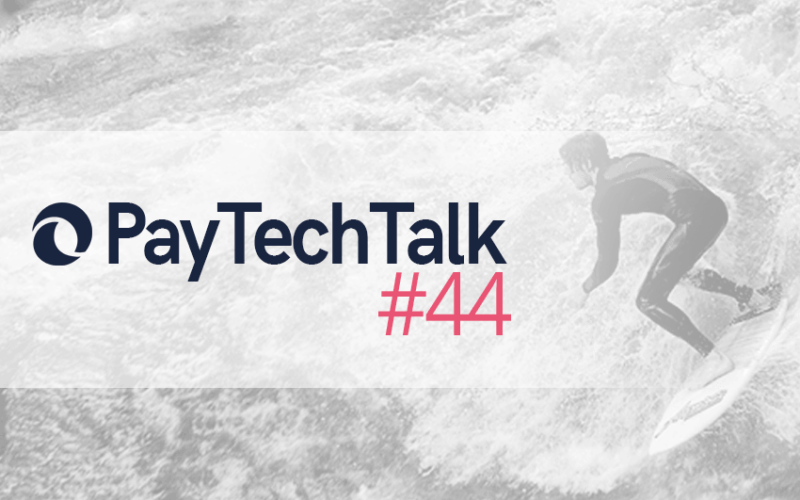A little while ago, we reported on the draft bill for the implementation of the 5th EU Anti-Money Laundering Directive (AMLD5). On 31 July 2019, the Federal Cabinet decided on a draft law for the implementation of AMLD5, which introduces further changes to the German crypto ecosystem compared to the draft bill. Some of these changes are quite extensive. In the 44th episode of our PayTechTalk podcast, which will be broadcast as a co-podcast together with our colleagues from Payment & Banking, I will be talking to Kilian Thalhammer, Hartmut Giesen and Martin Kreitmair about the implications of the new bill. If you like reading, you can also check out also my guest article on this topic in the IT Finanzmagazin. Enjoy the read.
News regarding crypto regulation: new legal definition of crypto value and crypto custody business
What is meant by a “crypto value“? Does this include all crypto currencies and crypto tokens? What about Libra? And what is meant by “crypto custody“? Why can crypto custody business only be conducted on its own and does this mean that in future banks will not be allowed or willing to conduct crypto custody business? What are the reasons for the “either-or solution“? According to the explanatory memorandum to the draft bill, this is intended to prevent IT-related security risks prevalent in the crypto custody business from spreading to other banking transactions and financial services. Would it not be possible to counter these risks with regulatory alternatives such as BAIT or MaRisk?
What other consequences does the “either-or solution“ have for the German crypto market? Does going it alone on a national level make any sense at all in a globalised and digital world? How far is Germany‘s regulatory landscape moving away from that in Europe?
As a possible reaction to the draft bill of the Federal Cabinet, BitPay has announced on its support website that it will no longer be serving the German market. BitPay is one of the leading payment providers for payments with crypto currencies. Apart from Germany, no other EU country is affected. The other countries affected are Algeria, Bangladesh, Egypt, Iraq and Vietnam, where Bitcoin & co. are illegal. Will other providers follow BitPay‘s example and withdraw from the German market? Wouldn‘t it have made more sense to wait for a European solution? Lots of intriguing questions here which have led to some lively discussions! Enjoy PayTechTalk 44! J
Further information and links
My conversation partners in episode 44
Kilian Thalhammer: Kilian serves as Vice President Product at Wirecard AG and Managing Partner of Payment & Banking.
Wirecard is one of the world‘s fastest growing digital platforms in the field of financial commerce. It offers both business customers and consumers a constantly growing ecosystem of value-added services for innovative digital payment transactions: online, mobile and at the point of sale.
Payment & Banking: paymentandbanking.com was launched on 31 August 2012 and, with over 400,000 visits of in 2017 alone, has developed into one of the most important contact points for the industry in Germany. The regular paymentandbanking podcast has been available since 2015 and boasts around 35,000 listeners per month.
- https://www.linkedin.com/in/kilianthalhammer/
- https://twitter.com/kilian2002
- https://www.wirecard.com/de
- https://twitter.com/wirecard
- https://paymentandbanking.com/
- https://twitter.com/paymentbanking
Martin Kreitmair: Martin is the CEO and co-founder of Tangany GmbH. He specialises in blockchain technologies.
The Munich startup Tangany offers a complete blockchain infrastructure solution to companies in the EU. This enables companies to integrate blockchain quickly, easily and securely into existing as well as new applications.
- https://www.linkedin.com/in/martin-kreitmair/
- https://twitter.com/MKreitmair
- https://tangany.com/
- https://twitter.com/tangany
Hartmut Giesen: Hartmut has been implementing digital business models for Sutor Bank since 2012. His tasks include the business development of Fintech, digital partners and crypto / blockchain, the creation and development of the Sutor banking platform as well as the support of internal digitalisation projects.
Sutor Bank is the banking-as-a-service partner of successful Fintechs such as Zinspilot, Growney, Fairr.de and Fintiba. Currently, more than 180,000 customers of digital partners use this banking platform. In addition to platform banking, Sutor Bank is also active in private banking, foundation management and B2B banking for financial product distributors.
- https://www.linkedin.com/in/hartmutgiesen/
- https://twitter.com/hartmut_giesen
- https://www.sutorbank.de/startup-platform
PayTechLaw / PayTechTalk:
External links:
- https://www.it-finanzmagazin.de/kryptowerte-kryptoverwahrung-hauruck-regulierung-nationaler-alleingang-93035/
- https://support.bitpay.com/hc/en-us/articles/360000123366-Why-can-t-I-use-BitPay-s-services-in-my-country-
- https://www.bafin.de/SharedDocs/Veroeffentlichungen/DE/Fachartikel/2018/fa_bj_1803_ICOs.html
- https://www.bundesfinanzministerium.de/Content/DE/Standardartikel/Themen/Internationales_Finanzmarkt/2019-07-31-bekaempfung-geldwaesche.html
Cover picture: Copyright © PayTechLaw

 Please
Please 


